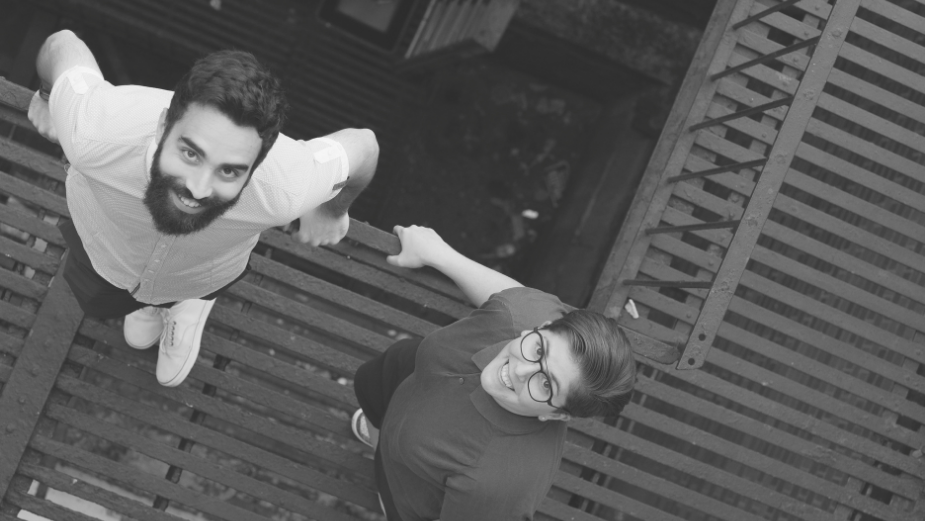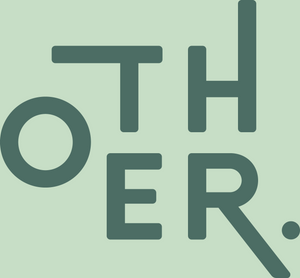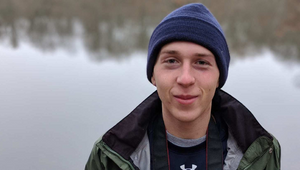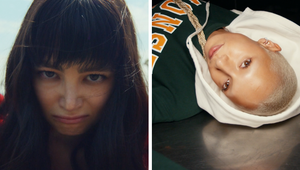
Other NYC’s Kadie Migliarese and Daniel Techy: “Editors Are Storytellers in our Own Right”

What’s the difference between a good edit and a great edit? There’s no set answer to that question - rather than technical calling cards or flashy and memorable moments, it’s often the more abstract feel of an edit that elevates great work. Learning how to create that feeling in a project can sometimes take an entire career. There’s no set path to success, and no two great editors share the same story.
That nebulous understanding of the craft of editing was at the forefront of our minds when LBB spoke to Other NYC’s Kadie Migliarese and Daniel Techy. The pair started at the company at the same time it was founded, and have each been honing their craft alongside some of the best talent - and indeed the biggest clients - to be found anywhere in the industry.
To find out what makes an editor tick, and pick through Kadie and Daniel’s respective processes, we spoke to the two editors...
Q> Hello, Kadie and Daniel! First things first, when did you guys know that a career in this industry was the right path for you?
Kadie> Hi! I think it began when I started seeing patterns in the dailies as an assistant - it was less about just seeing the footage and more about if and how an editor was going to use a certain shot. I started building up my own idea of how I’d use certain footage if I were doing an edit, which in turn allowed me to develop an eye for it and generally believe that I could do it.
When you’re thinking like that - taking an interest and intrinsically wanting to learn more - it’s a good sign that you’re in the right place.
Daniel> I’d say my journey began when I was in high school in Brazil. I’d always been interested in movies, and it was in school that some friends and I were tasked with making a video presentation for an assignment. It just so happened that I was assigned to be the editor, piecing it all together. Seeing the reactions from my classmates when they saw themselves in the film was so rewarding, I knew I needed to push myself to find out more - so I pursued it at college and then beyond.
Q> Daniel, that feeling you describe when you’re feeding off of people’s reactions to your work - do you still get that feeling now?
Daniel> Oh absolutely. In fact, now, it’s dialled right up to 11 because our work will be featured on TV and so my friends and family would message me and say ‘oh I saw that ad you were working on’ - I can’t lie, it feels amazing every time!
Q> We often hear that ‘the first cut is the deepest’. So how do you guys like to start an editing project?
Kadie> For me, I think it’s really important to know your footage inside and out. So I’ll always make sure I watch everything front to back and back to front - that helps raise your own levels of expertise on a project, and ensure you could watch a whole edit with your eyes closed.
But as far as actually starting the cut, I’m certainly one of those people who just needs to get something in the timeline and go from there. You might think you’ve already seen the perfect shot for the opening scene, for example, and you can use that as a platform to build on.
Daniel> I have a similar process. One thing I find at the beginning of a project is that you can be a little bit experimental and try things out, in the knowledge that you can safely restart anyway. You’ve always got the brief guiding you from the back of your mind, of course, but it’s worth finding out what you can come up with as well.
Q> And is there ever an element of maybe finding something that the client didn’t yet know they wanted, but works brilliantly? Is that something that motivates and rewards you guys?
Kadie> Yeah I’d say so. I think part of our job is to get down what’s on the initial brief, but also provide maybe another option which says ‘here’s how we can take this cut to the next level’.
Daniel> And of course, sometimes what looks great on a storyboard doesn’t quite work for whatever reason in reality. That’s fine, and it means it’s up to us to work around that and find a solution which does work. And that all comes back to the advantages of being experimental where necessary.
Q> We understand that Other NYC as a company puts a focus on mentorship. Would you agree with that and, if so, why is that culture of mentorship important to your career and your craft?
Kadie> As an editor - whether you’re just starting out or have been doing it for years - it’s really easy to fall into a process of tunnel vision, or just patterns that you naturally slip into and repeat. So I think it’s great to just have other people available and willing to look at your work and not say ‘this is wrong’ or ‘this is right’, but offer insight and perspective. Education throughout your career is super important and collaboration facilitates that.
Daniel> Yeah, we learn together. Everyone has a different style of editing, and when we’re collaborating you can draw on the experience of another person and that might help provide a solution you might not have seen otherwise. So the mentorship culture helps you grow professionally, without a doubt.
Q> Kadie, you’ve said that music is a big part of who you are and how you edit. So do you particularly enjoy editing to music?
Kadie> I love to cut to music. To me, the rhythm of a piece is the emotion you’re trying to convey. So structure is everything - by changing the structure, you’re changing the emotion. As an editor, I don’t think you can ever use music as a crutch. You should be able to turn the music off, watch your cut-down, and see that it still works. If not, you may need to rethink something.
Q> So how does your process work - will you be walking around listening to music and daydreaming about images that could be cut to fit the song, or does it not work like that?
Kadie> Ha, it’s funny you say that. When I was younger it was absolutely a habit of mine. I’d be listening to something and thinking ‘yeah I can imagine a shot of someone running there’ or ‘oh that’s someone getting out of a car’, stuff like that. Even now, when I hear a great track, I’ll keep it in the back of my mind for future use.
Q> And Daniel, you’ve said that getting in touch with nature is important to your creative process. Why is that, and what kind of inspiration does nature give you?
Daniel> As I say, I’ve kind of always lived in big cities so escaping to nature has been a powerful release throughout my entire life. Don’t get me wrong, I love the craziness of the city - but I also love to get out of it. I’ll often take my camera with me and find myself looking for the right framing on an image, or gravitating towards wherever the lighting is good - so my brain is always switched-on in that sense! But it’s a relaxed kind of switched-on.
More often than not I'll come home from a hike or from camping with some footage that I can play with. It’s a really freeing experience - at work you’re always focused on something, whether that be the product, the narrative, or something else. With this, I can be fully experimental and just practice stuff that I wouldn’t otherwise even attempt.
Q> Looking back at your respective careers so far, are there any specific projects which come to mind as being especially significant or meaningful to you?
Kadie> Something that jumps to mind is these two pieces for T Magazine, the New York Times’ arts and culture magazine. They were longer-format, narratively driven pieces and working on them helped me realise that I loved working with narratives. One was based on the Broadway scene in the late 70s and 80s, and another was about the playwright Terrence McNally - who sadly passed away last year - and his amazing life and achievements. Working on those projects really crystallized my understanding of how editors are storytellers in our own right.
Above: Kadie’s experience working on two longer-format films for the New York Times’ T Magazine highlight the storytelling power of great editing.
Daniel> One which will forever stay lodged in my mind is the first project I worked on here with Luis [Moreno, president of Other NYC]. It was one of the first big pieces of work I’d been involved with, a series of 30-second spots for Old Navy. That was a special experience, the whole project for me was one elongated process of finding out how this industry works.
Above: Daniel's work on 'BMX' for Old Navy provided the young editor with a first experience of how the industry worked.
Another example that jumps to mind is some work I did for Maybelline around National Lipstick Day. The brand posted the ads to their social media accounts, with a few of them being shared in Brazil! That was hugely rewarding, and really special at that stage in my career.
Q> And, looking to the future, is there a ‘dream editing job’ that you’d love to work on one day?
Daniel> For me, I’ve always wanted to try my hand at feature films. In fact, one of my absolute goals going back to being a kid growing up in Brazil was that I want to direct a feature film. And I’m not picky! It can be a comedy, a horror, whatever. I’d love to be involved in feature films.
Kadie> This is probably coming off the back of that work for T magazine we were just talking about, but I would love to work on a documentary. I find the idea of filling in the blanks of a story really appealing, and so that’s something I’d love to do more of in the future.
Aside from that, I really love sports. So if I could cut a WNBA commercial or something like that, it would be a dream come true.
Q> Finally, this past year has been a difficult one for many of us. How have you both been staying creatively motivated and inspired throughout it all?
Kadie> Right at the start of the first lockdown, something we did with Other NYC was start up a film club that went through the decades. We’d watch two or three movies from that era, and from that we learned a lot about the craft and it gave us all a tonne of inspiration.
Daniel> Yeah, so we started off with silent films. Although we had both watched a lot of old movies, this film club introduced us to lesser-known work and really shone a new light on the culture of that decade and what we could learn from it. So that was a fun way to build the team, whilst staying apart.
Kadie> And aside from that, I’ve been inspired by the kind of stuff you see people creating on TikTok and Instagram, or how some TV shows have tried to incorporate remote filming into how they work. It just shows, creativity will always find a way. That’s been a comforting thought, without a doubt.










